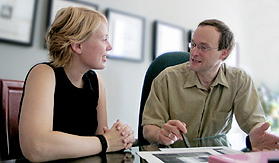From the Ask Tom Mailbag –
Question:
Can you give me an example of how you would incorporate Time Span in a Role Description?
Response:
This is not magic. Don’t think of Time Span as something extra in the Role Description. Time Span is simply a part of every description of task assignments and defined goals.
Level of Work
Time Span helps us calibrate the Level of Work, so we can more specifically describe the task assignments and embedded goals. What is the difference between these two descriptions –
- Project Manager – candidate will be managing all project elements, people, materials, equipment, supplies and supporting vendors for projects three months in length.
- Project Manager – candidate will be managing all project elements, people, materials, equipment, supplies and supporting vendors for projects eighteen months in length.
The Level of Work in the first description would be Stratum II. This would be a coordinating role, likely assembling project elements from known checklists of personnel, materials, equipment and approved vendors.
The Level of Work in the second description would be Stratum III. This coordination will require the manager to deal with many unknown elements one and half years into the future. There will likely be personnel changes during that time, along with changes in scope, materials with lead times, vendors going out of business, equipment that becomes obsolete, changes in materials pricing. The complexity goes way up and will require a higher level of capability.
Time Span is simply the “by when” of every task assignment or embedded goal. The language we use to communicate task assignments doesn’t change, we just, now, understand the significance of time related to the Level of Work.
